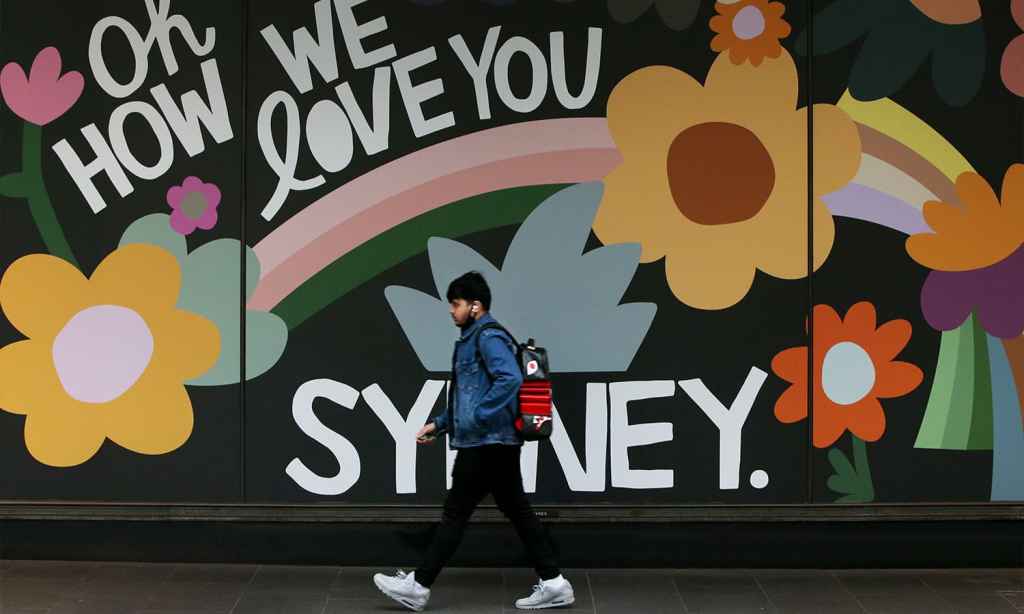The NSW Premier has struck a cautious but optimistic tone as COVID restrictions relax once again in the state. Premier Dominic Perrottet announced that the state was on high alert as case numbers climb, however, he believes the high vaccination rate should be sufficient to keep further restrictions from becoming necessary.
December 15 had been decided as the date at which many of the remaining restrictions would be lifted back in November, and, as those who remain unvaccinated will now be able to enjoy the same freedoms that those who have had two doses have experienced since October.
There are also relaxed rules around density caps, mask-wearing, and COVIDSafe check-ins in venues.
Perrotett also announced that the definition and requirements for close and casual contacts have changed, with anyone deemed a close contact only requiring a negative PCR test before they are allowed back into the community after isolation.
However, the new rules come as NSW experiences a rise in case numbers over the past few days, with the state recording 1,360 overnight, up from 804 on Tuesday and 536 on Monday. The jump is the highest number of new infections seen in the state since September 11.
NSW #COVID19 update – Wednesday 15 December 2021
In the 24-hour reporting period to 8pm last night:
– 94.8% of people aged 16+ have had one dose of a COVID-19 vaccine
– 93.2% of people aged 16+ have had two doses of a COVID-19 vaccine pic.twitter.com/eHEcX69k25— NSW Health (@NSWHealth) December 14, 2021
The Premier convened an emergency cabinet meeting on Wednesday, however, no new restrictions were introduced and the state has appeared to stick to the plan it’s had in the works for months.
Perrottet attempted to soothe concerns by saying that the high vaccination rate has enabled the state to open “with confidence”.
“We’ve always said, as we open up, as mobility increases, case numbers will increase. Case numbers alone are not the only important factor. What is important is our hospitalisations and ICU presentations.”
The Premier flagged the booster jab as an important factor in the fight against rising case numbers and the omicron variant which is suspected to be behind the surge. He also cautioned people to act “sensibly” and to socialise in well-ventilated areas.
Health Minister Brad Hazzard struck a similarly optimistic tone, telling the state that “We’re on alert and we’re cautious” as case numbers appear to double every two or three days.
The rising case numbers, he said, “Tells us that each of us has a responsibility to look after ourselves, our family, our friends.”
However, Hazzard also noted that “Vaccines are not stopping transmission” and that omicron “may well be spreading across NSW”.
That being said, he also suggested that, based on evidence from the UK and South Africa, “the severity of illness is not as bad as it was with previous variants of the coronavirus”
Hazzard warned that spending time in nightclubs and other areas where people are packed in with limited ventilation is perhaps not a good idea at the moment. He suggested people have a “quiet” Christmas if they want to remain safe.
Modelling by the state appears to show that “By the end of January, we could be looking at 25,000 cases of the virus every single day,” according to Hazzard.
Dr Kerry Chant said that she believes that omicron is driving the rapid rise in cases in Newcastle and across the state and warned that scientists are not yet sure what the “clinical severity” of the new variant is.
“The current virus does seem to evade your immune system,” she said. “I would urge everyone to continue to wear masks in indoor environments.”
Do I Need to Isolate?
New measures around the definition of close and casual contacts have come into play in NSW as of today, December 15.
Perrottet said that close contacts, meaning someone who has spent 15 minutes or more in the company of someone with COVID, will no longer be required to isolate for seven days, they only need a negative PCR test.
This means that if you’ve been flagged as a close contact, you will have to isolate, get a test, and then wait for those negative results. Once the results come back negative, you no longer need to isolate and can return to living life as normal.
Tests, however, aren’t expected to return accurate results until three days after exposure, so it’s probably best to get a couple or isolate for a few days just to make sure.
However, home contacts, meaning anyone who lives with someone with COVID or has spent significant time at the house of someone who does, will still have to isolate for seven days and get two PCR tests.
Obviously, workplaces, particularly in healthcare, will have their own policies so it’s best to check with your employer if someone you live with develops the disease.
Chant did emphasise, however, that she wants people to make “sensible” decisions and take their own circumstances and individual responsibilities seriously.
Read more stories from The Latch and subscribe to our email newsletter.







